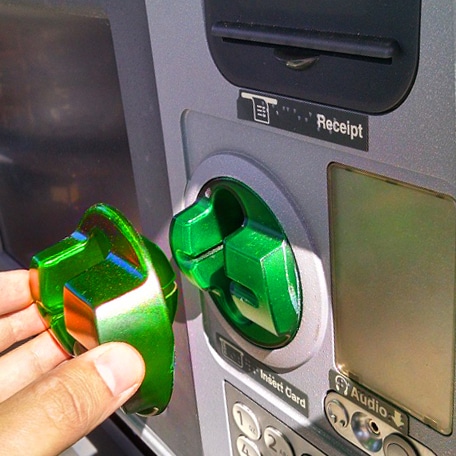Background
On May 1, 2024, a Kirkland patrol officer responded to a fraud complaint at a Bank of America in Kirkland, WA. An ATM technician discovered a deep insert skimming device in one of the drive-up ATM’s. Activity and error logs from the ATM provided a generalize time that the device was placed. Bank of America was able to provide video evidence of the device being placed, and detectives were able to identity a license plate on the vehicle and track it to a potential suspect that had already left the State of Washington.
Investigation and Key Findings
When the suspect re-entered the State of Washington the detectives were alerted, and they conducted mobile surveillance. The suspect was taken into custody, his vehicle was seized, and a vehicle search warrant was requested. Upon execution of the search warrant, additional skimming devices, pin hole cameras, micro-SD cards, as well as several hundred blank “Welcome” generic hotel room keys were located inside the suspect’s vehicle.
Enter ERAD (Electronic Recovery and Access to Data)
The “Welcome” cards recovered from the Toyota Sienna were run through ERAD to catalogue encoded data on the magnetic strips. The ERAD system identified 182 unique account numbers encoded on the cards for various banks. Twenty-one (21) were from Bank of America and the other banks identified were Capital One, Wells Fargo, BECU, Alaska Federal CU, USAA, US Bank, Chase, and others.
The card data was broken into Excel spreadsheets (redacted/unredacted) and added to the case file for reference.
Conclusion
ERAD’s system allowed for quick scanning of the cards that saved the two detectives time and allowed them to verify compromised financial account information. It took approximately an hour to scan through 1250 cards, create the excel reports, and upload the evidentiary reports to the case. The success of this investigation underscores the importance of leveraging specialized skills and technology in financial crime investigations.

